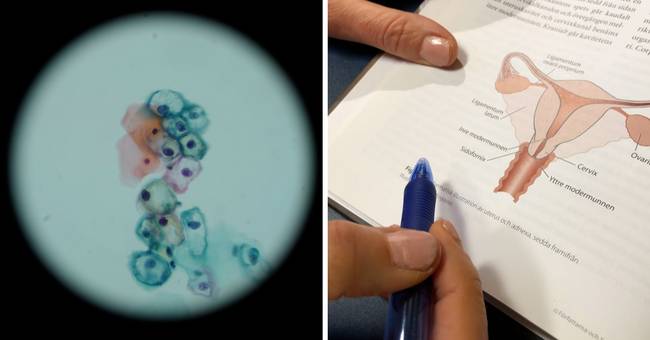A new research study conducted in the UK and published in the scientific journal The Lancet shows a clear reduction in the number of cases of cervical cancer in girls vaccinated against human papillomavirus, HPV.
In girls who were vaccinated when they were between 12 and 13 years old, the number of cases of cervical cancer was 87 percent lower than in unvaccinated women.
The number of cancer cases was 62 percent lower in girls who were vaccinated when they were between 14 and 16 years old and 34 percent lower in the group who were vaccinated when they were between 16 and 18 years old compared to unvaccinated people.
The study was performed on girls who were vaccinated with the HPV vaccine Cervarix between 2008 and 2012 in the UK.
Similar effect in Sweden
In Sweden, vaccines against HPV virus are included in the general vaccination program and are offered to all children in year 5. According to Joakim Dillner, professor of infectious epidemiology at Karolinska Institutet, the vaccine protects against HPV infection and since such is in principle necessary to develop cancer so the vaccine also protects against this.
- There are a very large number of HPV viruses that you can get an infection from, but only a small number can cause cancer and they are the ones we are trying to prevent now, he says.
Since the vaccinations started, it has been possible to see the same effects as the study in the Lancet also shows among vaccinated girls in Sweden.
- There has been a decrease in Sweden among those who have taken the vaccine, we are currently waiting to see an effect of it decreasing in the entire population, says Joakim Dillner.
Vaccine for the benefit of all
The HPV vaccine has the greatest effect if it is taken at a young age, but according to Joakim Dillner, it is possible to vaccinate women up to the age of 27 if you are tested to see if you carry the virus.
- If you are negative, you have a very low risk of developing cervical cancer.
If you are positive, there is an opportunity to be followed up via the regular cell sample checks, he says.
For women between the ages of 30-70, cervical cancer is prevented through regular gynecological cell sample tests.
- We believe that if you see a reduced circulation of HPV in the population, you do not need to take the test as often because you have a much less risk of getting the infection, says Joakim Dillner.

